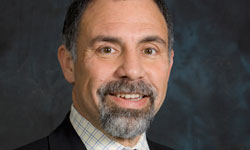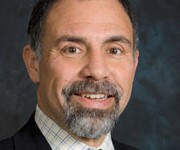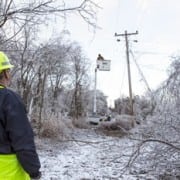Not a training ground
I really missed the mark in my February column. While writing in early January that “little evidence is left of the record cold weather,” I had no doubt that winter’s cold wouldn’t last much longer. No one anticipated the Tennessee Valley Authority would set five of its top 10 record peak demands in the first few weeks of the year. Unfortunately, I was half-right: High bills continue to strain budgets throughout the region.
On those five coldest days, TVA and the local power companies generated and delivered 3,399 gigawatt-hours. Without delving into the math again (see inset), that’s enough energy to power Nashville for 10 months. Everything didn’t work to perfection, but the power stayed on. It’s quite an accomplishment to achieve once, but to meet the demand again and again is remarkable. And you don’t achieve the remarkable by accident.
Former Defense Secretary Donald Rumsfeld, when discussing the dangers troops were encountering in Iraq, created some new classifications for problems: “There are known knowns … there are known unknowns … there are also unknown unknowns.”
When you lead — whether it’s troops into battle, hikers on an outdoors excursion or utility employees keeping the current flowing — you need a certain amount of technical expertise. Good leadership also knows a thing or two about failure. It’s good to learn early what doesn’t work. Some ideas that look great on paper just don’t turn out so well.
For example, in the early 1990s, many of us in the electric utility industry were certain that fuel cells would eventually allow us to serve remote loads efficiently and inexpensively. The technology was “just a few years away.” A couple of decades later, it’s still just a few years away.
That’s just a small example of how “experts” can miss the mark. With new technologies, it becomes even more challenging. Longtime utility workers may not know that wind turbines can’t operate below certain temperatures or in extremely high wind speeds. There simply aren’t any simple answers. The steady hands at the helm of our utilities have years of seasoned experience. If there were an easier, less-expensive way to do what we do, that’s how we would be doing it.
For our nation to have a workable energy policy, we need experts with true subject-matter knowledge and a few battle scars. What we don’t need is policy designed by people who don’t know what it takes to keep the lights on.
It seems the political leaders driving our nation’s energy policy are following that path. Many simply don’t know enough about our industry to be discussing energy policy — much less drafting it.
In the utility industry, we have our share of “known knowns” and “known unknowns.” We’ve learned to work through those. But building the next century’s energy policy with “unknown unknowns?” Designing the electricity grid that powers our lives shouldn’t be a training ground.
To lean more and become part of the conversation focused on a sensible, balanced approach to the Environmental Protection Agency’s planned new rules for power plants, go to takeactionTN.com.







Leave a Reply
Want to join the discussion?Feel free to contribute!